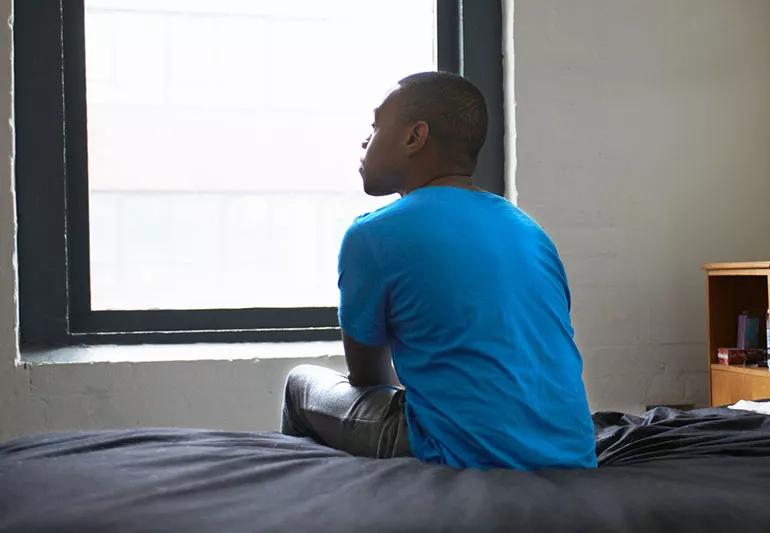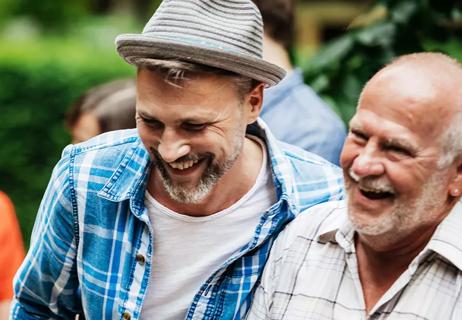Maintaining hope and positive behavior during a pandemic

Managing addiction recovery can be difficult at any time but the recent coronavirus pandemic has made doing so even harder. Besides affecting in-person meetings and appointments, current quarantine rules have also put extra strain on those struggling with recovery.
Advertisement
Cleveland Clinic is a non-profit academic medical center. Advertising on our site helps support our mission. We do not endorse non-Cleveland Clinic products or services. Policy
But that doesn’t mean any efforts are hopeless. Understanding what triggers can add stress to your situation can make dealing with current circumstances easier. And it’s also important to know how many ways you can still receive the support you need.
“The pandemic itself is an unprecedented stressor,” says Brian Barnett, MD. “I think everyone is feeling anxiety because of it. That’s especially problematic when you have a substance abuse disorder because it can be a very significant trigger for relapse.”
In fact, Dr. Barnett says that there have been some spikes in overdose deaths in the weeks following the pandemic taking hold in the United States. “That’s definitely raising concern that people who have addictions are having a hard time dealing with this, possibly relapsing and returning to familiar ways of coping that, up until now, they’ve been successfully able to deal with.”
The social distancing and isolation measures introduced to help curb the spread of the virus can also have adverse effects on those going through addiction recovery. “Some people are very isolated right now from other people,” says Dr. Barnett.
And boredom can contribute to relapses as well, he adds, saying, “We know people with addiction have a hard time tolerating boredom. Being stuck at home, there’s not much to do so that can contribute to relapse as well.”
Advertisement
But, he notes, it might affect others differently. “You might find some people are in situations with family members where there’s tension. There might be difficulties because of lack of childcare and everyone being in a very confined space together.”
Despite these obstacles, there are ways to alleviate the stress, says Dr. Barnett, and to avoid the triggers that may spur a relapse.
In the days leading up to many cities and localities issuing shelter-in-place orders, many people may have stockpiled substances they depend on, Dr. Barnett says, be it alcohol, drugs or something else. “They may have anticipated the oncoming stress and wanted to deal with it by using these substances,” he says.
It’s best, he says, to get rid of those stashes. “I’d definitely recommend getting these stockpiles out of the house. It’s really hard to deal with the temptation of having different substances around like that.”
If family issues are stress triggers for a patient, Dr. Barnett suggests setting boundaries can be helpful. “If you’re at home with a family member who’s causing this stress, you can be open with them and tell them the situation is a stressor. Be honest about having thoughts of using or relapsing.”
Another emotional boundary Dr. Barnett suggests is controlling the amount of time you may spend reading about the pandemic. “It’s very easy to get sucked in, with constant updates and the ongoing discussion of the death toll. It’s important to stay updated, but you can do so in a structured manner, like checking the news at just the beginning or end of the day.”
Some patients may also find meditation apps or exercise like yoga helpful in dealing with anxiety and helping to center themselves.
Creating some physical boundaries and distance is also helpful. “Create some distance or maybe stay in a different part of the house,” Dr. Barnett suggests. “Maybe go outside for a walk and give yourself some time to cool off.”
Most importantly, while many organizations may not be holding face-to-face meetings right now, they are offering a variety of ways to connect via telephone or with online virtual appointments.
At Cleveland Clinic, staff at the Alcohol and Drug Recovery Center are utilizing a variety of ways to visit with patients virtually and stay in touch even with restrictions on in-person appointments. “It’s nice to have and use this technology because we’ve been able to continue our outpatient clinical care,” says Dr. Barnett.
Advertisement
While Cleveland Clinic’s Intensive Outpatient Program isn’t having in-person meetings, they’re still seeing patients, calling and talking to them every day on the phone. “If patients are feeling like their outpatient care isn’t enough, then we have that available to them as well,” says Dr. Barnett.
There are other options, too. Alcoholics Anonymous (AA) has a very extensive network of online virtual meetings as well as by phone. And those options have multiplied since in-person meetings have been canceled due to the outbreak.
For those who might be interested in AA’s approach but don’t feel comfortable with the spiritual aspect of AA, Dr. Barnett suggests Smart Recovery. “Some patients might struggle with AA or feel it’s not a good fit for them because of the spiritual focus. Smart Recovery is still focused on group-based recovery but it doesn’t have that spiritual aspect so it may be a better fit for some patients.
And you should never forget reaching out to friends and family for support, especially if isolation is an issue. “Talking to friends or family on the telephone or video calls can help reduce the stress of isolation,” Dr. Barnett says. “Substance-free activities that you’ve done before to relax are good to fall back on. If they’ve been helpful before, there’s a good chance they’ll be helpful now.”
Advertisement
Advertisement
Learn more about our editorial process.
Advertisement

When you’re dependent on a substance, your body relies on it to function; when you’re addicted to a substance, you continue to use it despite negative consequences

Genetics may increase your risk of a substance use disorder, but that doesn’t mean it’s fated

Science doesn’t support most claims about this bee byproduct, and supplements have potential risks

Breathing, exercise, mindfulness and more can help you unwind and step away from your stress

It isn’t a recognized mental health disorder, but research shows that problematic social media use can negatively affect your mental health, self-esteem and sleep

Move a little more, eat a little healthier, sleep a little better and destress a lot

From breath meditation to yoga nidra, all types of meditation aim to help you feel calmer, more relaxed and present

This fruit has clear nutritional benefits — but there’s little evidence it can prevent or treat illness

Wearing a scarf, adjusting your outdoor activities and following your asthma treatment plan can help limit breathing problems

Your diet in the weeks, days and hours ahead of your race can power you to the finish line

When someone guilt trips you, they’re using emotionally manipulative behavior to try to get you to act a certain way